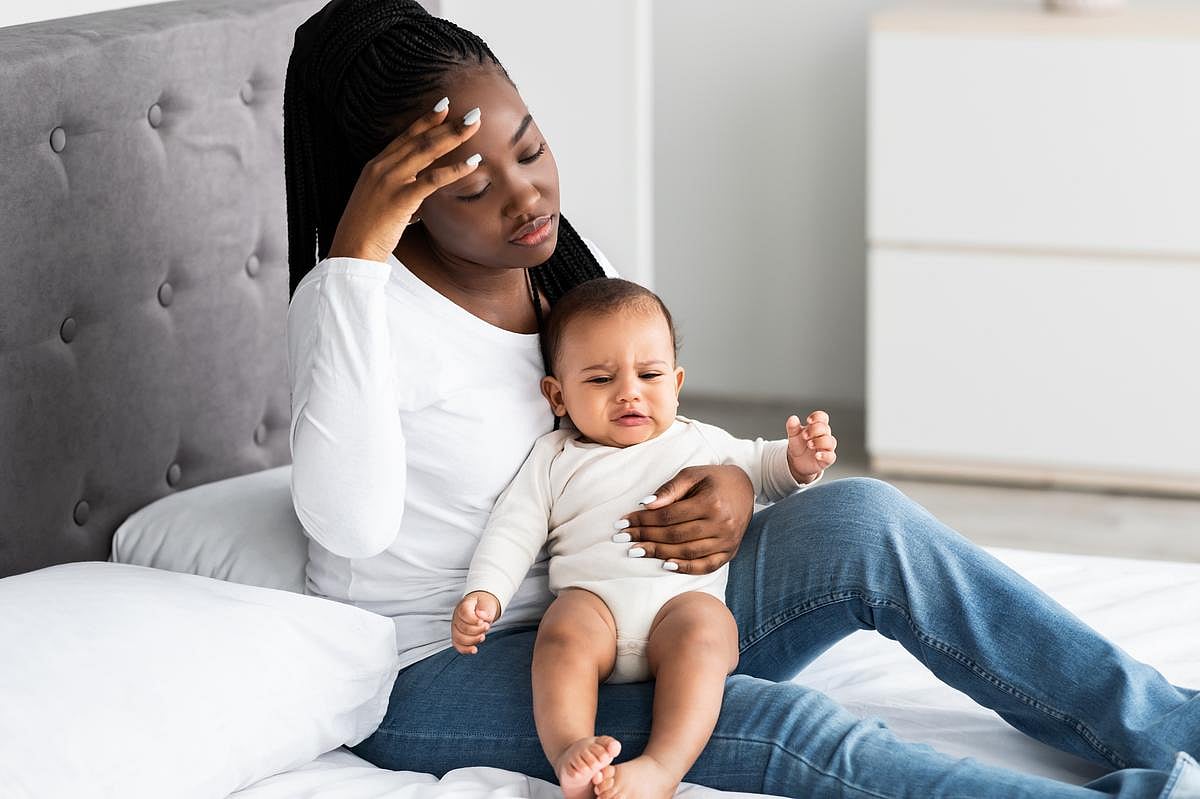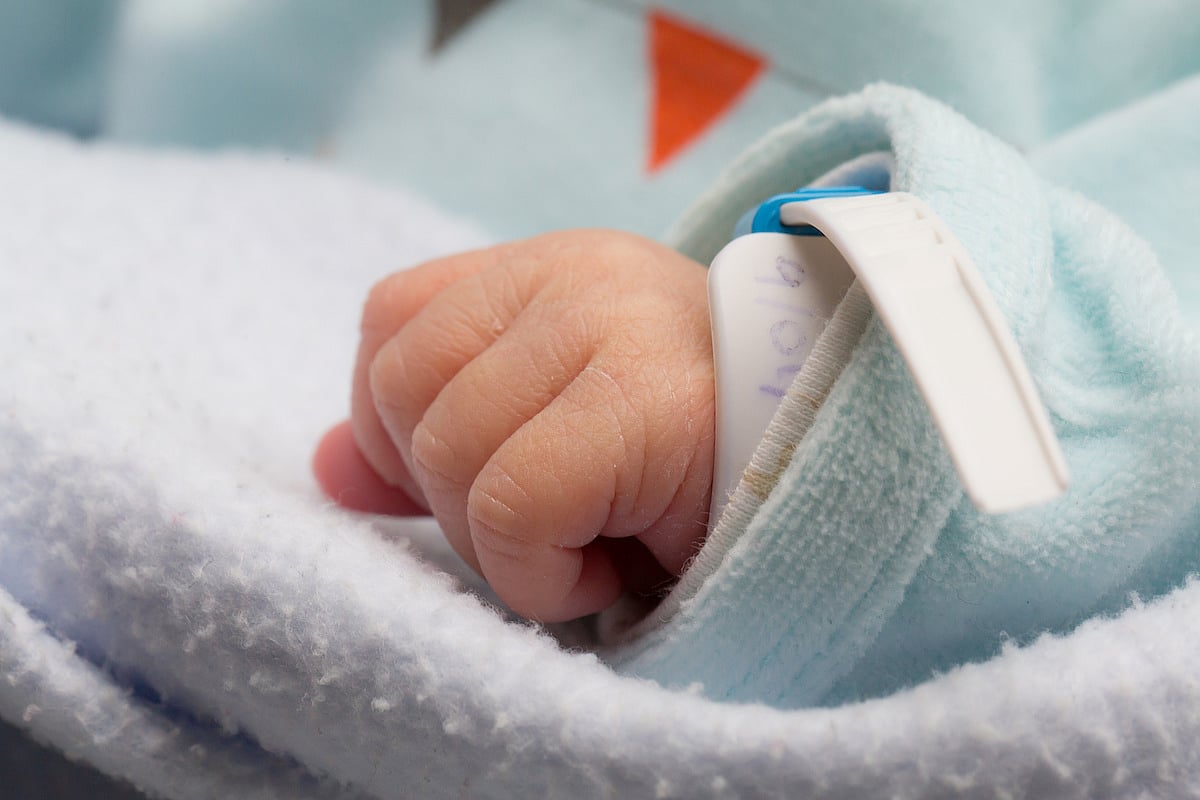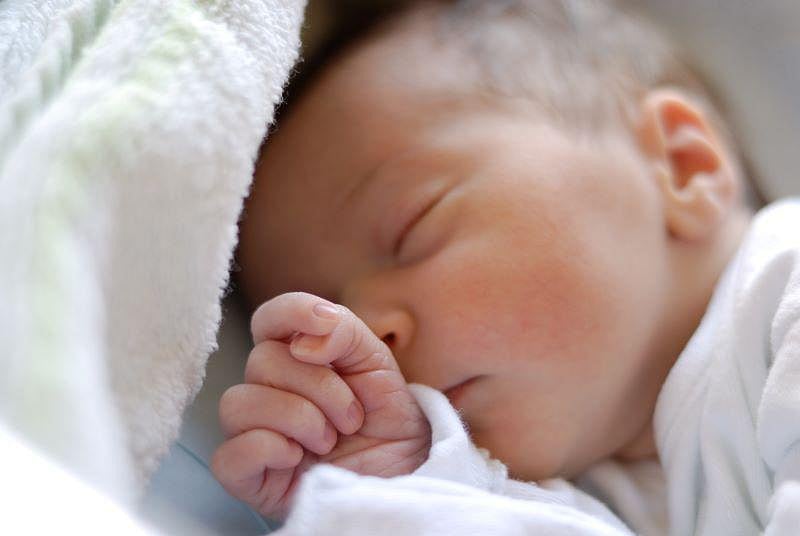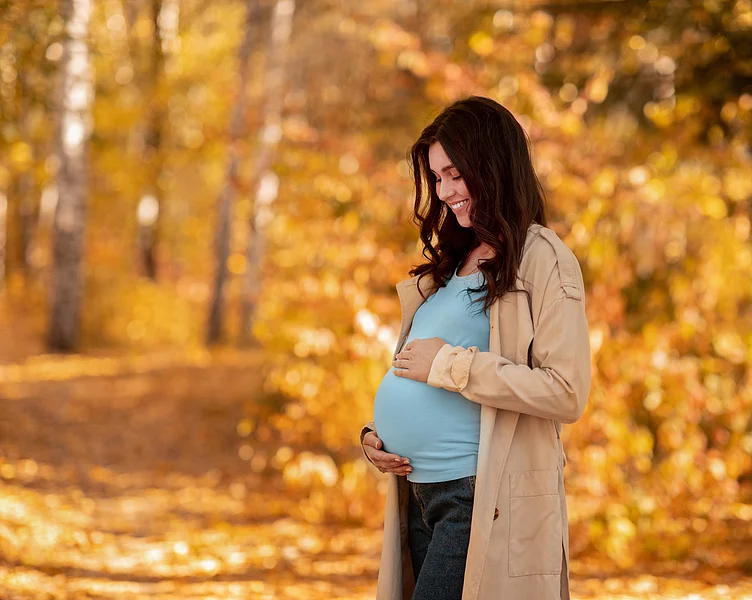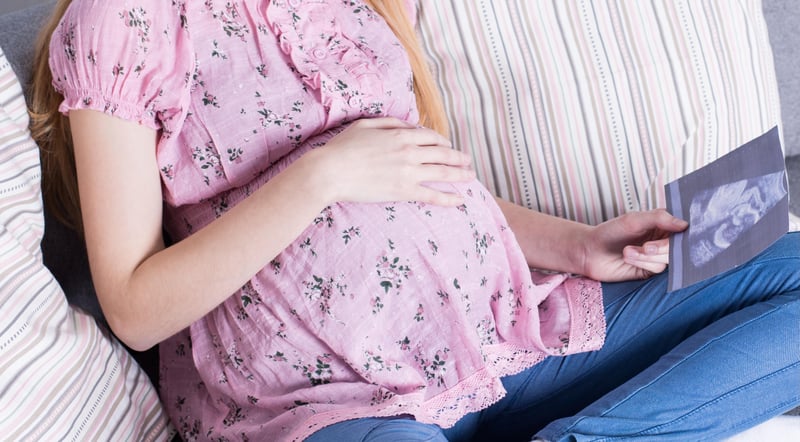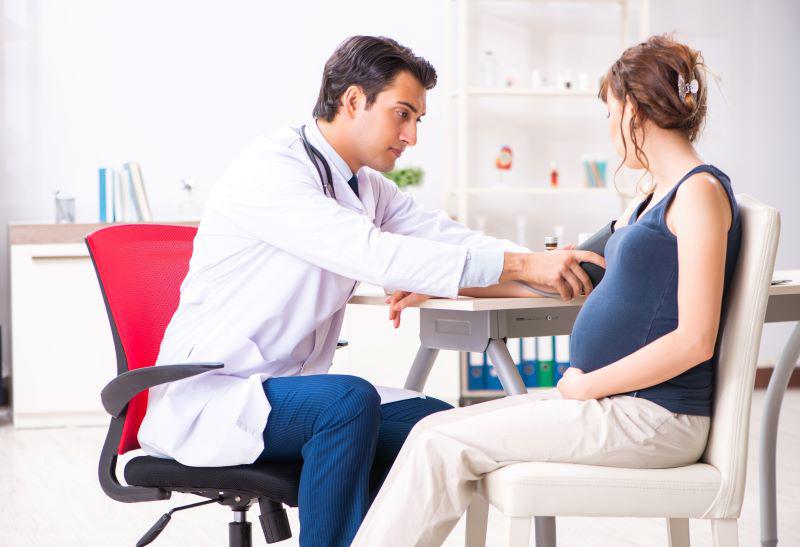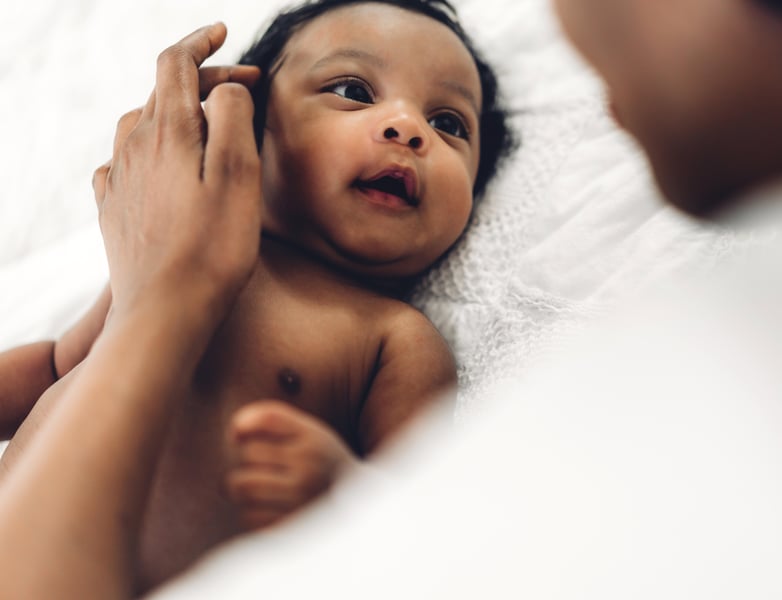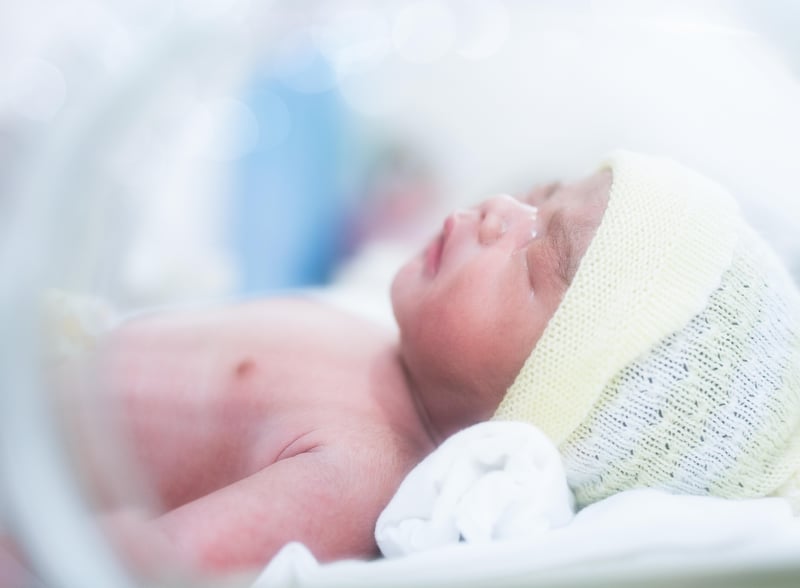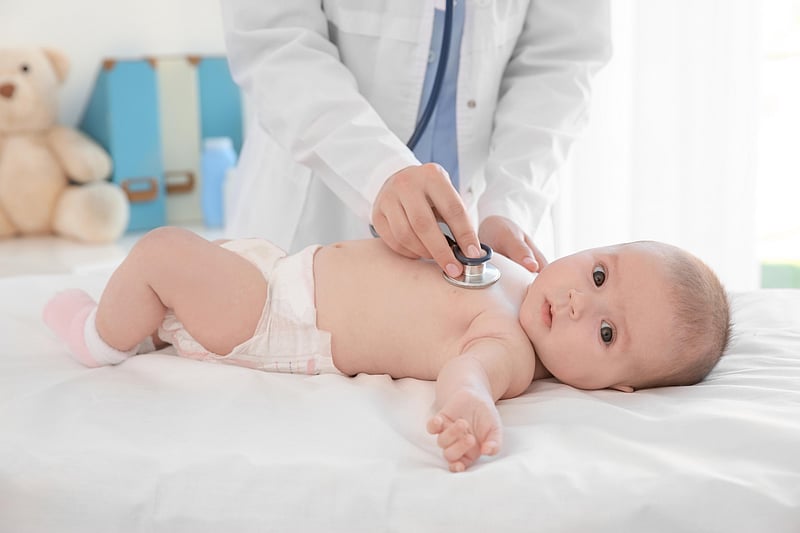Due to a recent change in our pharmacy software system, the process for submitting refill requests online has now changed.
Our previous mobile app and your current login credentials will no longer work.
Please click the Refill Online tab to begin the new process.
Thank you for your patience during this transition.
Manténgase sano!
57 Resultados de su búsqueda "Childbirth".
Resultados de noticias de salud - 57
Doctors might be able to predict a newborn's long-term health outlook, by analyzing their umbilical cord blood, a new study says.
Genetic clues found in cord blood can offer early insight into which infants are at higher risk for health problems like diabetes,
Childbirth is an overwhelming accomplishment, but new mothers would do best not to rest on their laurels following delivery, a new guideline says.
New moms should clock at least two hours a week of moderate to vigorous physical activity in the first months following birth, expe...
- Dennis Thompson HealthDay Reporter
- |
- March 26, 2025
- |
- Página completa
MONDAY, Jan. 13, 2025 (HealthDay news) -- Low-income single mothers appear to be using welfare as a form of paid family leave following childbirth.
Most women who enter the Temporary Assistance for Needy Families (TANF) program after childbirth are in the program for less than a year, researchers reported in a study published recently in the
Chronic health problems like high blood pressure, gestational diabetes and obesity have fueled a troubling rise in maternal health issues and birth complications in Illinois, a new study finds.
"These birth outcomes are worsening for all ages, reflecting the worsening pre-pregnancy h...
- Carole Tanzer Miller HealthDay Reporter
- |
- November 25, 2024
- |
- Página completa
Having a child can cause significant and ongoing financial hardship for new parents, even if they are covered by health insurance, a new study shows.
More than half of people with private insurance spent more than $1,000 out of pocket on childbirth, and nearly 40% reported bein...
- Dennis Thompson HealthDay Reporter
- |
- November 8, 2024
- |
- Página completa
Women who take vitamin D supplements during a pregnancy may be giving their kids the legacy of stronger bones, new British research suggests.
Children whose moms took vitamin D supplements when pregnant had stronger, denser bones at the age of 7 compared to the kids of women who didn't, a study from the University of Southampton shows.
It's an head start on bone health that might l...
- HealthDay Reporter
- |
- November 7, 2024
- |
- Página completa
Women who are pregnant but who also have the ovarian cyst disorder polycystic ovary syndrome (PCOS) are at higher odds of giving birth to an underweight baby, new Norwegian research shows.
The risk rises even higher if the woman with PCOS is also obese, the study found.
“In women of n...
- Ernie Mundell HealthDay Reporter
- |
- November 6, 2024
- |
- Página completa
Women who’ve had concussions are more likely to suffer severe mental health problems following childbirth, a new study shows.
A history of concussion increased a new mother’s risk of severe mental illness by 25%, after adjusting for...
- Dennis Thompson HealthDay Reporter
- |
- November 4, 2024
- |
- Página completa
Final government data finds the number of U.S. births falling by 2% last year compared to 2022, continuing a decades-long decline.
Overall, annual U.S. birth numbers have fallen by 17% since peaking in 2007, according to the new report from the U.S. Centers for Disease Control and Prevention. The general fertility rate (births per 1,000 women) has also tumbled by 21% over that time period...
- Ernie Mundell HealthDay Reporter
- |
- August 20, 2024
- |
- Página completa
Roughly a month after having her second child, Nicole Gerardi-Lukens suddenly felt pressure in her pelvis that was so intense it sent her to the hospital.
When doctors told her bladder had prolapsed -- meaning that it had slipped from its normal position and was bulging into the vaginal wall -- she anticipated surgery and a long, difficult recovery with a newborn and 4-year-old at home.
- Carole Tanzer Miller HealthDay Reporter
- |
- July 15, 2024
- |
- Página completa
Many sexually transmitted diseases are on the rise in the United States, and a nationwide poll indicates that ignorance about how they're transmitted could be fueling their spread.
About a third of Americans (34%) falsely believe sexually transmitted infections (STIs) can only be tra...
- Dennis Thompson HealthDay Reporter
- |
- June 27, 2024
- |
- Página completa
Many women are unhappy with the state of U.S. maternal health care, but a major new poll finds most Americans don't understand how badly the nation lags behind other wealthy countries in this area.
Only about 2 in 5 (42%) women currently pregnant or ever pregnant strongly felt they had access to the best possible medical care while pregnant, down significantly from 50% in 2022, according ...
- Dennis Thompson HealthDay Reporter
- |
- June 5, 2024
- |
- Página completa
Women who get an epidural during delivery appear to have a marked reduction in serious complications the first few weeks after giving birth, a new study shows.
A painkilling epidural can reduce risk by 35% in women for complications like heart attack, ...
- Dennis Thompson HealthDay Reporter
- |
- May 28, 2024
- |
- Página completa
Babies born by C-section are unlikely to receive protection from a single dose of measles vaccine, a new study finds.
A single measles jab is up to 2.6 times more likely to be completely ineffective in C-section babies, compared to those born vaginally. Their immu...
- Dennis Thompson HealthDay Reporter
- |
- May 14, 2024
- |
- Página completa
The short post-pandemic uptick in U.S. births may be over, with 2023 numbers showing a decline in births.
According to provisional data from the U.S. Centers for Disease Control and Prevention, just under 3.6 million babies were born in America in 2023, about 76,000 fewer than the year before.
It's also the lowest number of births recorded in the United States since 1979.
De...
- Ernie Mundell HealthDay Reporter
- |
- April 25, 2024
- |
- Página completa
Childbirth is a harrowing ordeal, and it's being made worse by mistreatment from health care providers during labor, a new study says.
More than one in every eight women are mistreated during childbirth, researchers found.
Most commonly, women's requests for help during
Maternal syphilis rates have tripled in recent years, putting thousands of newborns at risk for infection, a new U.S. government report shows.
Left untreated, syphilis can damage the heart and brain and cause blindness, deafness and paralysis. When transmitted during pregnancy, it can cause miscarriage, lifelong medical issues and infant death.
In the new
When Kelsey Hatcher's twins share their birth story someday, their tale will truly be one in a million.
Hatcher, who gave birth at the University of Alabama at Birmingham (UAB), has a rare double uterus and was pregnant with a baby in each one. After 20 hours of labor, she delivered two girls -- Baby A on Dec. 19 and Baby B on Dec. 20.
"Never in our wildest dreams could we have plan...
- Carole Tanzer Miller HealthDay Reporter
- |
- December 26, 2023
- |
- Página completa
The timing of a simple, standard part of childbirth could mean the difference between life and death for premature babies, a pair of new evidence reviews have concluded.
Preemies whose umbilical cords are clamped 30 seconds to two minutes after birth are less likely to die before leaving the hospital, compared to those whose cords are immediately clamped, researchers report in the Nov. 14...
- Dennis Thompson HealthDay Reporter
- |
- November 15, 2023
- |
- Página completa
Following nearly two decades of decline, U.S. infant death rates edged up by 3% in 2022, new provisional government numbers reveal.
"This was the first year we saw statistically significant increased rates of infant mortality in about 20 years,"said study author Danielle Ely, a statistician at the U.S. National Center for He...
- Denise Mann HealthDay Reporter
- |
- November 1, 2023
- |
- Página completa
New parents bringing home their bundle of joy often carry something else with them as they leave the hospital: medical debt.
That's according to new research from Michigan Medicine that found postpartum women are more likely to have medical debt than those who are pregnant.
The researchers studied this by evaluating collections among a statewide, commercially insured cohort of more ...
- Cara Murez HealthDay Reporter
- |
- September 29, 2023
- |
- Página completa
The United States is experiencing an alarming wave of congenital syphilis, and one southern state saw a 1,000% rise in babies born with the infection between 2016 and 2022.
The number of babies born with the infection in Mississippi rose from 10 in 2016 to 110 in 2022. Syphilis is a sexually transmitted bacterial infection. Congenital syphilis occurs when an infected mother passes the dis...
- Steven Reinberg HealthDay Reporter
- |
- September 21, 2023
- |
- Página completa
Walkable neighborhoods -- with sidewalks, parks and paths -- encourage pregnant women to get more exercise, which leads to good outcomes for both mom and baby.
New research looks at the influence of these walkable communities on this activity, which is considered safe for pregnant women.
<...- Cara Murez HealthDay Reporter
- |
- August 21, 2023
- |
- Página completa
Having a baby in the United States continues to be a risky proposition, particularly for Black women, according to a pair of new reports.
The number of U.S. deliveries that resulted in severe, potentially life-threatening complications for the mother increased between 2008 and 2021, according to a new analysis led by the U.S. Department of Health and Human Services (DHHS).
Further, ...
- Dennis Thompson HealthDay Reporter
- |
- June 26, 2023
- |
- Página completa
Many American women fear childbirth, and the COVID-19 pandemic did not calm those feelings, new research shows.
"Our results showed really high rates of childbirth fear in our sample," said Zaneta Thayer, co-author of a new study and an associate professor of anthropology at Dartmouth College in Hanov...
- Cara Murez HealthDay Reporter
- |
- May 17, 2023
- |
- Página completa
Pregnancy rates in the United States suffered a steep decline during the last decade, new government data shows.
The overall U.S. pregnancy rate fell by 12% between 2010 and 2019, according to figures released Wednesday by the U.S. National Center for Health Statistics (NCHS).
The pregnancy rate among women aged 15 to 44 was 85.6 per 1,000 in 2019, down from 97.3 per 1,000 in 2010, ...
- Dennis Thompson HealthDay Reporter
- |
- April 12, 2023
- |
- Página completa
The "baby bust" that hit the United States during the first year of the COVID pandemic did not affect all states equally -- with states that were more racially diverse or more "blue" seeing bigger drops in their birth rates.
That's among the findings of a ...
- Amy Norton HealthDay Reporter
- |
- April 11, 2023
- |
- Página completa
A potentially dangerous complication of pregnancy might be prevented by carefully screening women late in pregnancy and planning a timed delivery for those at high risk, a new study reports.
More than half of all preeclampsia cases that occur late in pregnancy could be warded off through induced labor or cesarean section provided to high-risk women, according to an analysis published onli...
- Dennis Thompson HealthDay Reporter
- |
- April 10, 2023
- |
- Página completa
Where a woman lives in the United States has a lot to do with whether she has severe maternal complications from childbirth, according to new research using Medicaid data.
Her race or ethnicity also greatly affects this, researchers found.
"Near misses" -- where complications could have led to the death of the woman during pregnancy or delivery -- are highest in Washington, D.C., nu...
- Cara Murez HealthDay Reporter
- |
- April 7, 2023
- |
- Página completa
New mothers who gave birth early in the pandemic filled far more opioid prescriptions than American women did previously, raising concerns about the potential for narcotic misuse.
About 38% of more than 460,000 women who gave birth from July 2018 through December 2020 were prescribed opioids for postpartum pain management, according to the University of Georgia study.
But there was ...
- Cara Murez HealthDay Reporter
- |
- April 5, 2023
- |
- Página completa
Despite a longstanding assumption that babies' gut microbiome development could be affected by whether they were born vaginally or through cesarean section, scientists report this doesn't appear to be the case.
A team of Canadian researchers looked to infant stool microbiome composition in the first weeks and months of life to evaluate the theory.
"We show that the composition of th...
- Cara Murez HealthDay Reporter
- |
- March 31, 2023
- |
- Página completa
New evidence finds that babies born by cesarean section may not miss out on essential microbes.
Though these newborns receive less of their mother's gut microbiome during birth, they can obtain their mom's microbes in breast milk and in other ways.
"We wanted to have a better idea of how the infant microbiome develops in different parts of their bodies and how it's influenced by f...
- Cara Murez HealthDay Reporter
- |
- March 10, 2023
- |
- Página completa
You're 38 weeks pregnant and so uncomfortable you can barely move, so you ask your doctor if labor can be induced early.
That's not necessarily a good idea, according to new research that found children born after elective induced labor may do worse in school.
Dutch researchers found that 12-year-olds who as newborns were delivered after elective induced labor scored lower on tests...
- Steven Reinberg HealthDay Reporter
- |
- February 22, 2023
- |
- Página completa
Continuing a decades-long trend, the percentage of American women who've ever had a child declined again in the latest figures from the U.S. Centers for Disease Control and Prevention.
"A lower percentage of women aged 15 to 44 in 2015--2019 had ever had a biological child (52.1%) compared with women aged 15 to 44 in 2011--2015 (54.9%)," concluded a report issued Jan. 10 by the CDC's Nati...
- Ernie Mundell HealthDay Reporter
- |
- January 10, 2023
- |
- Página completa
More pregnant women in the United States are choosing to deliver their babies at home rather than in hospitals, a trend that may have been influenced by the pandemic.
A U.S. Centers for Disease Control and Prevention report published Thursday showed that 52,000 women gave birth at home in 2021, an incre...
- Cara Murez HealthDay Reporter
- |
- November 17, 2022
- |
- Página completa
The pandemic brought about a lot of changes in people's lives. For many, that included a new baby.
The United States saw a "baby bump"in 2021 described in a new study as "the first major reversal in declining U.S. fertility rates since 2007."
It was the opposite of what early forecasts predicted.
"There was less ...
- Cara Murez HealthDay Reporter
- |
- October 21, 2022
- |
- Página completa
Stillbirth is heartbreaking tragedy for parents, but exactly what raises the risk of it remains elusive.
Certain health conditions in a pregnant woman can be a factor, but new research came up with a surprising finding: Stillbirth risk appears to be inherited through male members of the family on eithe...
- Cara Murez HealthDay Reporter
- |
- October 19, 2022
- |
- Página completa
Pregnancy can be safer and healthier for both mom and baby with good access to quality maternity care.
Yet, the United States is still among one of the most dangerous developed nations for childbirth, especially in rural areas and communities of color, according to a new March of Dimes repo...
- HealthDay Reporter
- By Cara Murez HealthDay Reporter
- |
- October 11, 2022
- |
- Página completa
Too much anxiety isn't good for anyone, but a new study suggests it is particularly perilous for pregnant women because it can raise the chances of their child being born early.
Given that finding, the researchers recommended that doctors screen for anxiety during the...
- HealthDay Reporter
- By Sydney Murphy HealthDay Reporter
- |
- September 27, 2022
- |
- Página completa
Stories about their difficult birth or their parents' fertility challenges can give adult children a more grateful, upbeat attitude towards their lives, British researchers suggest.
They studied the messages as well as how they were delivered, interviewing people about the stor...
- HealthDay Reporter
- By Cara Murez HealthDay Reporter
- |
- September 7, 2022
- |
- Página completa
Childbirth shouldn't put any dent in your future lovin', regardless of the way your baby was delivered, new research assures.
Sexual enjoyment isn't affected at all by method of delivery in the years following childbirth, according to a study involving the mothers of more than 14,000 babies bor...
- HealthDay Reporter
- By Dennis Thompson HealthDay Reporter
- |
- August 24, 2022
- |
- Página completa
Where you live may affect your fertility, a new study suggests.
People who live in economically deprived neighborhoods are about 20% less likely to conceive, compared to people from areas with more resources, researchers said.
Investments in deprived neighbo...
- HealthDay Reporter
- By Cara Murez HealthDay Reporter
- |
- August 3, 2022
- |
- Página completa
Better have some savings stored up before you rush to the delivery room: A new analysis shows the average out-of-pocket expense for delivering a child in the United States is nearly $3,000, even if you're insured.
Other studies have looked at the costs for specific services, such as Cesarean sections versus vagina...
- Ellie Quinlan Houghtaling HealthDay Reporter
- |
- July 21, 2022
- |
- Página completa
Babies delivered by cesarean section are no more likely to have food allergies during their first year of life than other infants, according to an Australian study.
The association between type of delivery and food allergy risk had been unclear, so researchers decided to take a closer look.
For the study, they analyzed data on more than 2,000 infants in Australia; 30% were delivered...
- HealthDay Reporter
- By Robert Preidt HealthDay Reporter
- |
- May 23, 2022
- |
- Página completa
Giving antibiotics to a woman just before a cesarean delivery does not increase her baby's risk of asthma or eczema, a new British study says.
C-section is common, but can put new mothers at increased of infection, so they're given preventative antibiotics.
"Maternal infections, such as wound infection, can b...
- HealthDay Reporter
- By Robert Preidt HealthDay Reporter
- |
- May 20, 2022
- |
- Página completa
Pregnant women who aren't vaccinated against COVID-19 are at greater risk for delivering stillborn babies, and new research provides important clues about why.
Unlike other fungal, bacterial or viral infections, which cross over the placenta to affect the fetus, SARS-CoV-2 is particularly lethal to the developing placenta, and this damage deprives the fetus of oxygen and nutrition, said s...
- HealthDay Reporter
- |
- February 10, 2022
- |
- Página completa
So, you're pregnant and battling nausea every day. What harm could come from smoking a joint to settle your stomach?
Plenty, according to a new study that suggests women who use pot while expecting put their infants at risk for some serious health problems.
The problems included
A two-minute test can accurately detect vaginal bacteria associated with preterm birth, researchers have found, pointing to a possible way to identify pregnant women at increased risk of early delivery.
In the United States, about one in 10 babies are born preterm, according to the nonprofit March of Dimes. Babies born preterm (before the 37th week of pregnancy) are at increased risk of h...
- Amy Norton HealthDay Reporter
- |
- November 1, 2021
- |
- Página completa
Among the many negative effects of the COVID-19 pandemic may be damage to the bond between mothers and their infants, researchers say.
Women who experienced grief and depression due to pandemic-related losses may find it more difficult to form this all-important emotional connection with their babies, according to a new study from Brigham and Women's Hospital, in Boston.
"Becoming a...
- HealthDay Reporter
- Cara Murez
- |
- October 18, 2021
- |
- Página completa
Women who were born with heart defects may get some reassurance from a new study that finds they face no heightened risk to health during a pregnancy and delivery.
According to the researchers, doctors may often advise these women against getting pregnant due to the potential risks for them and their babies, but until now those risks have been unclear.
"The most important finding fr...
- HealthDay Reporter
- Robert Preidt
- |
- October 18, 2021
- |
- Página completa








